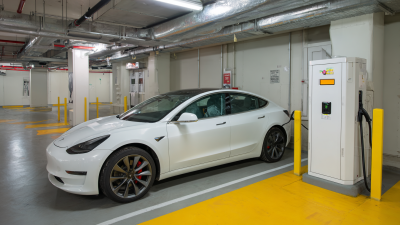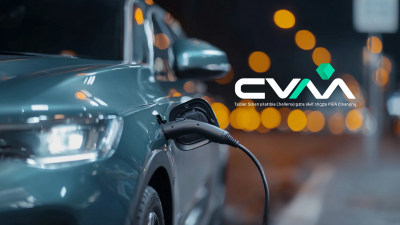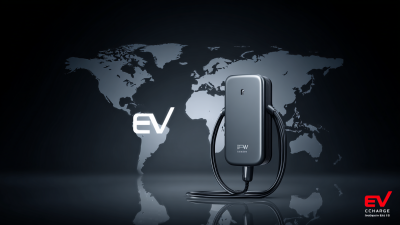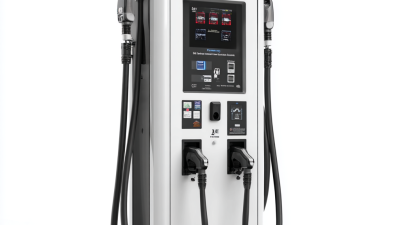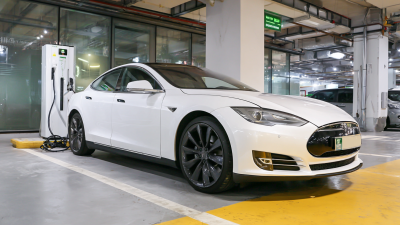As electric vehicles (EVs) continue to surge in popularity, the demand for efficient and reliable DC car chargers is more critical than ever. According to a recent report by the International Energy Agency (IEA), the global number of public chargers for electric vehicles reached over 1.3 million in 2021, with a significant portion being DC fast chargers that can substantially reduce charging time compared to traditional AC options. With technology constantly evolving, choosing the right DC car charger can seem daunting; factors such as charging speed, compatibility, and installation requirements must be considered. This ultimate guide aims to navigate you through the myriad of alternatives available in the market for DC car chargers, ensuring you have all the pertinent information to make an informed decision that meets your electric vehicle needs.

DC fast charging represents a revolutionary advancement in electric vehicle (EV) infrastructure, significantly reducing the time needed to recharge EV batteries. Unlike traditional AC charging, which can take hours, DC fast chargers can deliver a substantial amount of direct current in just 30 minutes or less, allowing drivers to quickly power up during long trips. This technology not only enhances convenience but also encourages the wider adoption of electric vehicles by alleviating range anxiety.
**Tip:** When selecting a DC fast charger, consider the compatibility with your specific EV model. Not all chargers offer the same output, so check your vehicle’s specifications to ensure optimal charging efficiency.
Moreover, as DC charging stations become more prevalent, choosing a location for charging is pivotal. Mapping out available charging stations along your route can save you time and help you avoid potential downtime.
**Tip:** Utilize smartphone apps that show real-time availability of DC fast chargers to find the closest and most efficient charging options while on the go. By staying informed, you can ensure a more seamless and enjoyable driving experience with your electric vehicle.
| Charger Type | Charging Speed (kW) | Charge Time (to 80%) | Connector Type | Average Cost ($) |
|---|---|---|---|---|
| DC Fast Charger | 50 - 150 | 30 - 60 min | CHAdeMO, CCS | 25,000 - 40,000 |
| Ultra Fast Charger | 150 - 350 | 15 - 25 min | CCS, Tesla | 40,000 - 100,000 |
| Level 2 Charger | 7 - 22 | 4 - 8 hours | J1772 | 500 - 2,000 |
| Wall Charger | 3 - 4.5 | 8 - 12 hours | J1772 | 300 - 1,500 |
When selecting a DC car charger for your electric vehicle, it's essential to focus on key features that enhance charging efficiency. One crucial aspect is the charging speed. Look for chargers that provide a high power output, typically measured in kilowatts (kW). Chargers with 50 kW or more can significantly reduce charging time, allowing you to get back on the road faster. Additionally, compatibility with your vehicle's charging port is vital. Ensure the charger supports the specific connector type your EV utilizes, whether it's CCS, CHAdeMO, or a Tesla adapter.
Another important feature to consider is the charger’s safety mechanisms. High-quality DC chargers come equipped with robust safety features that protect both your vehicle and the charger itself from overheating, overcharging, and power surges. Moreover, user-friendly interfaces and features like mobile app connectivity can enhance the overall experience, allowing you to monitor charging status and manage settings remotely. By focusing on these essential features, you can choose a DC car charger that meets your needs for optimal charging efficiency and reliability.
The electric vehicle (EV) ecosystem is witnessing a remarkable transformation, particularly in the realm of DC chargers.
The North American DC Charger market is projected to experience substantial growth, skyrocketing from approximately $1.04 billion in 2025 to an estimated
$26.15 billion by 2040, reflecting an impressive compound annual growth rate (CAGR) of 24%. This surge indicates a robust demand for
efficient and rapid charging solutions, driven by the increasing adoption of EVs across both consumer and commercial sectors.
As the EV landscape expands, so does the essential infrastructure that supports it. The global EV charging services market, currently valued at around
$12.5 billion in 2024, is set to see significant development in the coming years. This momentum is echoed in various regions, including
India, where the EV charging infrastructure is rapidly evolving though it faces challenges that need addressing to ensure sustainable growth.
With the rising necessity for fast-charging options and the ongoing technological advancements, the drive towards establishing a comprehensive network of DC chargers is crucial for
meeting future EV demands and enhancing the overall adoption of electric vehicles.
When it comes to charging electric vehicles (EVs), understanding the differences between
Level 2 chargers and
DC Fast Chargers is essential for meeting your specific needs.
Level 2 chargers are typically the go-to option for home charging, providing a decent power output
that allows you to fully charge your vehicle overnight. These chargers generally deliver
240 volts and can replenish an EV's battery in a few hours, making them ideal for daily commutes
and regular use. They are also more cost-effective and easier to install in residential settings, providing a good balance
between price and efficiency.
 On the other hand, DC Fast Chargers offer rapid charging capabilities
that can significantly reduce downtime during longer trips. With the ability to charge an EV to about 80% in as little
as 30 minutes, these chargers are perfect for road trips or situations where time is of the essence. However,
they tend to be more expensive both in terms of installation and electricity costs. Additionally, DC Fast Chargers are typically
found at public charging stations, making them less practical for everyday use. Ultimately, the choice between Level 2 and DC Fast
Chargers will depend on your driving habits, daily mileage, and whether
convenience or cost-effectiveness is your priority.
On the other hand, DC Fast Chargers offer rapid charging capabilities
that can significantly reduce downtime during longer trips. With the ability to charge an EV to about 80% in as little
as 30 minutes, these chargers are perfect for road trips or situations where time is of the essence. However,
they tend to be more expensive both in terms of installation and electricity costs. Additionally, DC Fast Chargers are typically
found at public charging stations, making them less practical for everyday use. Ultimately, the choice between Level 2 and DC Fast
Chargers will depend on your driving habits, daily mileage, and whether
convenience or cost-effectiveness is your priority.
As the global electric vehicle (EV) market continues to expand, with the onboard charger market projected to reach $5.48 billion by 2024, it's essential to consider the future innovations in DC charging technology. Over the next decade, advancements in charging efficiency and speed are expected to significantly enhance the EV ownership experience. Key developments may include ultra-fast charging capabilities that can recharge vehicles in mere minutes, making long-distance travel more feasible and convenient.

When choosing the best DC car chargers for your EV, keep in mind a few important tips. First, assess the charger's output power compatibility with your vehicle to ensure optimal charging times. Additionally, consider chargers with smart features that allow for remote monitoring and control through mobile applications, enabling you to manage your charging sessions efficiently. Lastly, invest in chargers that comply with the latest safety standards to guarantee reliability and peace of mind.
The advancements in charging infrastructure will not only benefit EV owners but also contribute to a more sustainable future. Expect to see a greater emphasis on integrating renewable energy sources into DC charging stations, fostering a cleaner, greener environment while meeting the increasing demands of electric vehicles on the road.

